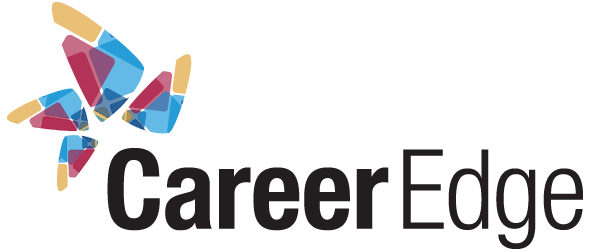
In today’s competitive business landscape, organizations that prioritize truly accessible workplaces in Ontario gain a significant advantage. Yet for the nearly 2.6 million Ontarians living with disabilities, navigating a world not designed with their needs in mind remains a daily challenge. As employers, the responsibility falls to us to transform our workplaces into environments where everyone can contribute their full potential.
This isn’t just about legal compliance—it’s about recognizing untapped talent, fostering innovation through diverse perspectives, and building a more equitable society. As Ontario works toward its goal of full accessibility by 2025 under the Accessibility for Ontarians with Disabilities Act (AODA), forward-thinking employers are discovering that accessibility is not a burden but a business advantage.
Understanding the Landscape: Why Accessibility Matters
The statistics tell a compelling story: people with disabilities face significantly higher unemployment rates than the general population, despite many being ready, willing, and qualified to work. This represents not only a social inequity but a massive missed opportunity for employers.
According to the Ontario Disability Employment Network (ODEN), businesses that embrace accessible practices and hire people with disabilities experience:
- Lower turnover rates and reduced absenteeism
- Increased productivity and innovation
- Access to an untapped talent pool in a competitive market
- Enhanced corporate reputation and brand loyalty
- Improved organizational culture and employee morale
Beyond these benefits, there’s a massive market incentive: Canadians with disabilities represent a consumer base with $55.4 billion in annual disposable income. Companies that understand accessibility often develop products and services that better serve this significant market segment.
Legal Framework: Ontario’s Accessibility Requirements
The regulatory landscape in Ontario provides clear guidelines for employers:
The Accessibility for Ontarians with Disabilities Act (AODA)
Enacted in 2005, the AODA aims to make Ontario fully accessible by 2025 through implementing and enforcing accessibility standards in key areas:
- Customer Service Standard: Ensuring services are provided in an accessible manner
- Information and Communications Standard: Making information accessible in various formats
- Employment Standard: Creating accessible hiring and employment practices
- Transportation Standard: Ensuring accessible transportation services
- Design of Public Spaces Standard: Making public spaces more accessible
For employers, key AODA requirements include:
- Developing accessibility policies and multi-year accessibility plans
- Providing accessibility training to staff
- Ensuring websites meet Web Content Accessibility Guidelines (WCAG 2.0)
- Establishing accessible hiring and employment practices
- Creating individualized accommodation plans for employees with disabilities
- Developing return-to-work processes that consider accessibility needs
The Ontario Human Rights Code
Complementing the AODA, the Ontario Human Rights Code establishes that employers have a duty to accommodate employees with disabilities to the point of undue hardship. This means taking all reasonable steps to ensure equal access to employment opportunities and workplace success.
From Barriers to Solutions: Creating Truly Accessible Workplaces
Understanding the common barriers faced by people with disabilities is the first step toward eliminating them. Let’s explore practical solutions across three key dimensions:
Physical Accessibility
Traditional workplaces often contain numerous physical barriers that limit access and productivity for employees with disabilities.
Common Solutions:
- Adjustable height desks and ergonomic furniture
- Wide doorways and accessible walkways
- Ramps and elevator access to all areas
- Accessible washrooms with proper fixtures and space
- Reserved parking spaces close to entrances
- Automatic door openers
- Proper lighting with reduced glare
- Quiet spaces for sensory breaks
Case Study: Shopify
The Canadian e-commerce giant redesigned its office spaces with accessibility as a priority and implemented flexible work arrangements. The result? A 40% reduction in accommodation request processing time and increased retention of employees with disabilities.
Digital Accessibility
In our increasingly digital workplaces, ensuring technology is accessible to all is crucial.
Common Solutions:
- Screen reader compatible websites and internal systems
- Captioned videos and transcripts for audio content
- Keyboard-navigable interfaces
- Alternative text for images
- Accessible document formats
- Assistive technology software and hardware
- Color contrast considerations in digital materials
Case Study: Microsoft Canada
Microsoft Canada created an inclusive hiring program specifically designed to recruit neurodiverse candidates. By making their digital application process and workplace systems accessible, they tapped into a previously overlooked talent pool and improved product development through diverse perspectives.
Procedural Accessibility
Sometimes the greatest barriers lie in workplace policies and practices that unintentionally exclude people with disabilities.
Common Solutions:
- Flexible work hours and remote work options
- Modified job duties when required
- Clear emergency evacuation procedures for all employees
- Access to assistive devices and services
- Regular check-ins and accommodation reviews
- Accessible meeting practices (providing materials in advance, visual aids)
- Mentorship programs for employees with disabilities
Case Study: TD Bank
TD implemented comprehensive accessibility training programs and established employee resource groups for staff with disabilities. This approach increased disability representation in their workforce to 7.1% and improved overall employee satisfaction scores.
Beyond Compliance: Building a Culture of Inclusion
While meeting legal requirements is essential, truly accessible workplaces go beyond compliance to foster cultures where accessibility is embedded in every aspect of operations.
Leadership Commitment
Accessibility initiatives succeed when leadership teams demonstrate genuine commitment through:
- Including accessibility in strategic planning and budgeting
- Setting clear goals and measuring progress
- Modeling inclusive behaviors
- Recognizing and rewarding accessibility champions
Employee Engagement
Engaging all employees in accessibility efforts helps create sustainable change:
- Forming accessibility committees with diverse representation
- Providing comprehensive training on disability awareness
- Creating channels for feedback on accessibility issues
- Celebrating accessibility achievements and milestones
Continuous Improvement
Accessibility is not a one-time project but an ongoing journey:
- Regularly reviewing and updating accommodation practices
- Staying current with evolving accessibility standards
- Soliciting input from employees with disabilities
- Benchmarking against industry best practices
Getting Started: A Strategic Approach to Workplace Accessibility
For executives and HR professionals looking to enhance workplace accessibility, consider this step-by-step approach:
- Assessment: Conduct an accessibility audit of your physical spaces, digital systems, and workplace policies.
- Planning: Develop a multi-year accessibility plan with clear goals, responsibilities, and timelines.
- Education: Provide comprehensive accessibility training for all staff, with specialized training for hiring managers.
- Implementation: Begin with high-impact, low-effort improvements while planning for more substantial changes.
- Feedback: Create mechanisms for employees to report accessibility barriers and suggest improvements.
- Measurement: Track progress using clear metrics and adjust strategies as needed.
- Partnership: Connect with organizations like ODEN that can provide resources and support for your accessibility journey.
Conclusion: The Business Case for Accessibility
As Ontario moves toward its 2025 goal of full accessibility, forward-thinking employers are recognizing that accessible workplaces are not just socially responsible—they’re competitively advantageous.
By removing barriers for employees with disabilities, organizations gain access to underutilized talent, foster innovation through diverse perspectives, and build stronger company cultures. The investment in accessibility yields returns in productivity, employee retention, and brand reputation.
Most importantly, creating truly accessible workplaces means building a future where every person can contribute their unique talents and abilities. As business leaders, we have both the opportunity and responsibility to make this vision a reality.
Resources for Ontario Employers
- Ontario Disability Employment Network (ODEN)
- Accessibility for Ontarians with Disabilities Act (AODA)
- Ontario Human Rights Commission
- Job Accommodation Network
- Rick Hansen Foundation Accessibility Certification
FAQ
Q: Do I have to disclose my disability when requesting interview accommodations?
A: You don’t need to provide detailed medical information about your disability. You only need to communicate what specific accommodations you require for the interview. For example, you can say “I need extra time to complete written assessments” without explaining the underlying medical condition. Employers are legally prohibited from asking about the nature of your disability during the pre-offer stage.
Q: When is the best time to request interview accommodations?
A: It’s best to request accommodations as early as possible in the process, ideally when you’re invited to interview or when scheduling is being arranged. This gives the employer adequate time to make necessary arrangements. However, you can request accommodations at any point during the hiring process, even if it’s last minute.
Q: Can an employer ask for medical documentation to support my accommodation request?
A: For interview accommodations, employers can request medical documentation, but they cannot ask for detailed medical records or require you to disclose your specific diagnosis. The documentation should simply confirm that you have a disability-related need for the requested accommodation.
Q: What if the employer says my requested accommodation is too expensive or difficult to provide?
A: Employers must provide reasonable accommodations unless it causes “undue hardship.” In Canada, this means the accommodation would cause significant expense or difficulty relative to the employer’s size and resources. If your first choice isn’t feasible, the employer should work with you to find an alternative accommodation that meets your needs.
Q: Can I request accommodations for online/virtual interviews?
A: Absolutely. Virtual interviews may require accommodations such as closed captioning, screen reader compatibility, extra time for responses, written chat options, or alternative video platforms that are more accessible with assistive technology. The same accommodation rights apply to virtual interviews as in-person ones.
Q: Will requesting accommodations hurt my chances of getting the job?
A: No, it’s illegal for employers to discriminate against candidates because they request reasonable accommodations. In fact, many employers view accommodation requests positively as it shows self-awareness and proactive communication. Your request cannot be used as a factor in hiring decisions.
Q: What if I realize I need accommodations during the interview itself?
A: If you realize you need an accommodation during the interview, don’t hesitate to speak up. You can politely ask for what you need, such as “Could you please repeat that question more slowly?” or “Would it be possible to take a brief break?” Most interviewers will be understanding and accommodating.
Q: Do I need to request the same accommodations for each interview stage?
A: You should request accommodations for each stage where you need them. Different interview stages (phone screening, in-person interview, skills assessment, etc.) may require different accommodations. Be sure to communicate your needs for each specific stage of the process.
Q: Can I bring a support person to my interview?
A: In some cases, yes. If you have a disability that requires support (such as a sign language interpreter, or a support person for anxiety), this can be considered a reasonable accommodation. However, the support person typically cannot participate in answering interview questions – they’re there solely to provide the accommodation you need.
Q: What happens if the employer doesn’t respond to my accommodation request?
A: Follow up politely but firmly. If there’s still no response, document your attempts to communicate and consider reaching out to the company’s HR department or diversity and inclusion team. If the employer continues to ignore your request, this may constitute discrimination, and you may want to seek legal advice or file a complaint with the appropriate human rights commission.
Q: Are there accommodations available for mental health conditions like anxiety or ADHD?
A: Yes, mental health conditions are covered under disability accommodation laws. Common accommodations include: extra time for interviews or assessments, breaks during long interview processes, quiet interview spaces, written instructions or questions, virtual interview options, or modified interview formats that work better for your specific needs.
Q: Can I request to see interview questions in advance?
A: While not all employers can provide exact questions in advance, you can request information about the interview format, types of questions that will be asked, or the general topics that will be covered. This can be particularly helpful for candidates with autism, ADHD, or anxiety who benefit from being able to prepare in advance.
Q: What if my accommodation needs change between the interview and starting the job?
A: Accommodation needs can evolve, and you have the right to request different or additional accommodations once you’re hired. The interview accommodation process is separate from workplace accommodations, so you’ll need to discuss your ongoing needs with your new employer’s HR team or supervisor after you’re hired.
Q: Is there a limit to how many accommodations I can request?
A: There’s no specific limit on the number of accommodations you can request, as long as each one is reasonable and related to your disability. However, the total combination of accommodations must not create an undue hardship for the employer. Focus on requesting the accommodations that are most essential for you to participate effectively in the interview process.
Q: How do I handle accommodation requests with recruitment agencies or third-party recruiters?
A: You can request accommodations through recruitment agencies, but it’s often helpful to also communicate directly with the hiring company’s HR department. Make sure both the recruiter and the employer are aware of your accommodation needs. If there’s any confusion about who’s responsible for providing the accommodation, ask for clarification from both parties.




